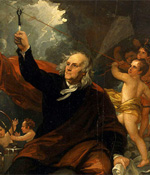The Internet is abuzz with University of Rochester Professor Adam Frank’s op-ed provocatively titled “Welcome to the Age of Denial.” It’s the most e-mailed piece on the New York Times right now, and it’s all over social media. It’s an interesting critique, and a great call to action. Many scientists and science communicators share his frustration, and believe that science and scientific thinking are increasingly marginalized in a time when so many of the challenges we face are science-based. Of equal importance, however, is how we frame and contextualize science—and how we deliver its messages.
More to it than just the science
What has been lost,” Professor Frank opines, “Is an understanding that science’s open-ended, evidence-based processes — rather than just its results — are essential to meeting those challenges.” I believe we need to go beyond being champions for the scientific method and figure out how we can come together around a common base of evidence. This means talking about more than just science.

Benjamin Franklin’s kite experiment, immortalized in this Benjamin West painting, was only the most famous episode in his prolific career as a citizen-scientist. Image Source: UCS.
To be sure, we are where we are today because the people of the United States used scientific approaches to tackle society’s problems and raise our standard of living. This dates back to the beginning of our republic. The Founding Fathers used scientific concepts to design our system of government. The pursuit and application of scientific knowledge is a main driver in developing our economy and improving our quality of life. Science is in our cultural DNA.
We need to recognize that respect for science and scientific thinking in America is still strong on many issues. Scientists are still among the most respected and most trusted people in our culture.
Yet any backlash against science and scientists occurs where a narrative is created that pits scientific findings against closely-held values. We should be watchful for when these narratives are intentionally propagated and exploited, and push back against those who are gumming up the works.
Yet what the writer misses is that science is much more than a tradition. It’s a means of improving our way of life. Science has provided us with significant benefits. We can’t afford to think of it as something to be revered and put on a pedestal. We need to employ scientific thinking and scientific output to address the challenges we face.
The reasons people reject evolution, vaccines, and climate change are all based on very different values. When people reject evolution, they use a religious frame. When people reject vaccines, they exhibit a distrust of pharmaceutical companies and a lack of confidence in government to protect them. When people reject climate science, they generally show a propensity to trust big business and fear government control.
In other words, scientific thinking doesn’t necessarily erode our values; it can complement them.
The message matters—and so does the messenger
Armed with this knowledge, there are ways we know we can overcome rejection of science. Scientists and others who communicate science have to think critically about their audiences and the values they hold. They can use this information to figure out how to best share scientific information.
Both the message and the messengers matter. And we can use what we learn to inform new communications strategies. For a religious audience, we can partner with science-supportive pastors. For the anti-vaccine crowd, we can focus on the real harm of diseases. For climate change, we can be conversant in solutions that also involve big business and financial opportunity. More and more lessons from the science of science communication are now being utilized.
Where Professor Frank really hits the nail on the head regards the need for scientists to engage. He calls on his students to become “fierce champions of science in the marketplace of ideas.” Indeed, he says they have no other choice.
I’d go even further: science provides us with a unique way of understanding the world. Evidence-based analysis offers us ways not only to address problems but to overcome divisions, potentially allowing people with completely different perspectives and values to work successfully together.
Science is rarely the only factor that drives personal and policy decisions. Nor should it be. But science should be fully considered when decisions are made.
For this to truly happen, people from all walks of life must be part of the dialogue. Scientists and non-scientists must develop stronger relationships to understand different bases of knowledge, perspectives and values. Our new experiment, the Center for Science and Democracy, is attempting to do just that. We don’t have all the answers yet. But with conversations like these, we’re making progress.
